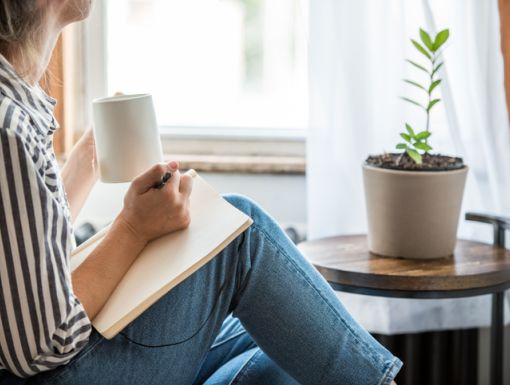
4 Tips for Maintaining Mental Health During COVID-19
It has been several months since the COVID-19 pandemic started, but in many ways, we are all still adjusting to this new way of life. Maybe you’re working from home more often. You're likely spending more time indoors, and possibly losing track of your regular routines. With this shift in lifestyle, it is hard to stay motivated. Here are a few tips to cope with and maintain your mental health during the COVID-19 pandemic.
- Plan your day. A daytime routine has become more important now that we have less structure in our daily lives. Go ahead and write out your schedule, including breaks. The process of writing things down will get it out of your head and allow you to be able to see what is physically and concretely there.
- Get adequate rest. A nighttime routine is as beneficial as a daytime routine. Aim to get ready for bed at least 1 to 2 hours before your bedtime. Dim the lighting, put away your electronic devices, and try to relax. Sleep hygiene is important. Sleep deprivation can contribute to a variety of health issues, including mental health issues. Make sure you go to bed at the same time. Adults should aim for 7-8 hours of sleep. You can learn more about recommended sleep requirements from the Centers from Disease Control. When waking up, try not to linger in bed. If you set alarms, try to keep your alarm out of reach. This will force you to stand up and turn off the alarm. Once you’re up, brush your teeth, wash your face, start your morning routine and do not get back in bed.
- Stay in touch. Social isolation can be a contributing factor to depression. Part of your daily or weekly routine should include making time for those who you are unable to see in person due to social distancing and social isolation. An easy way to maintain connections with your friends, family and loved ones is to utilize technology. There are a lot of apps that make it easy and safe to stay connected. You could also consider writing letters and traditional phone calls. It is also nice to mail gifts during special occasions (or just because you feel like it).
- Take a step back. If you’re feeling overwhelmed, it is important to take a step back. Monitor your levels of anxiety, and if you feel like you’re starting to get anxious, it’s better just to take a break instead of trying to push through. If you are now working from home, this includes taking scheduled breaks to step away from your work if only for five minutes. You should also take a break from social media and local or national news if you feel anxious and overwhelmed. Consider setting a specific time of day and time limit for when you will allow yourself to check social media or consume the news.
These unprecedented times are difficult for all of us. It is important to remember to prioritize your mental health as much as your physical health.
Learn more about Courtney Gunn, PhD and Ochsner Psychiatry & Mental Health Services.



